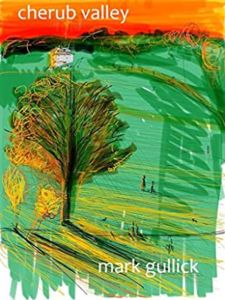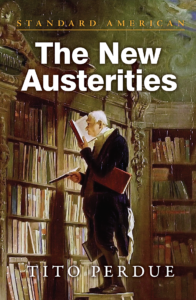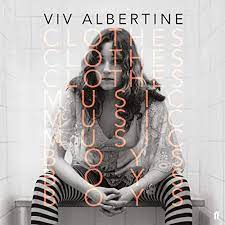Remembrance of Things Punk: Viv Albertine
Posted By Mark Gullick On In North American New Right | 7 CommentsAlbertine was one of those who took on too much in order to remain perpetually dissatisfied with herself. — Marcel Proust, Remembrance of Things Past
We were trying to write great pop songs, but ended up creating something new by accident. — Viv Albertine, Clothes, Boys, Music
Viv Albertine
Clothes Clothes Clothes Music Music Music Boys Boys Boys: A Memoir
London: Faber & Faber, 2014
British punk rock was both limited and extensive in its range of effects. Musically, it liberated a generation of young rock fans whose older brothers had had to put up with the likes of Yes and Emerson, Lake and Palmer, and gave them something frenetic and immediate to jump around to, all bedecked with chaotic, realist urban lyrics far removed from the glam pantomime that preceded punk. Culturally, punk rock promoted the idea that it is possible to strip back an art form to its basic components — although whether this formula works with the plastic arts is debatable — and reinvent it. Kick-started by American punk, and adding its own British ingredients selected from glam and heavy metal, punk wasn’t around for long, but no one who was there at the time will ever forget it, and it liberated many who I suspect don’t even know the root cause.

The gnarled question of what was and wasn’t punk raged throughout that short era. Personally, and listening back after almost half a century, I can hear the rattling, clanking engine of genuine punk in Alternative TV’s The Image has Cracked [2], the first three Fall albums, and Buzzcocks’ seminal EP, Spiral Scratch [3]. The latter has a claim to be the first British record released with the do-it-yourself, staples-and-gum ethos that made punk so anti-rock ‘n’ roll at the same time as it embodied and reworked its founding principles. Buzzcocks’ singer Howard Devoto, later to form the band Magazine, went up to Iggy Pop at a gig and gave him a copy of the EP, memorably informing Pop that “I’ve got all your records. Now you’ve got all mine.” The other album I would place unhesitatingly in this pantheon would be Cut [4], the first album by all-girl band The Slits. It is a punk album that doesn’t sound much like trad punk.

Viv Albertine was guitarist in The Slits, and her 2014 autobiography is both an essential read for the punk archivist, and a book so human in its depiction of the life of a woman utterly lacking in confidence you want to go round and make her a nice cup of tea. The book’s full title sets the tone for the whole piece: Clothes Clothes Clothes Music Music Music Boys Boys Boys. This was the mantra Albertine’s mother would chant as a commentary on her daughter’s chosen — but naturally teenage — lifestyle.
Albertine went to art school — the same one as her heroes, The Kinks — and recognizes it as a rite of passage for musicians. Fellow students were Graham Lewis, later to form the influential band Wire, and Stuart Goddard, who would emerge as Adam Ant. As punk began to gather pace, Albertine hung around Malcolm McLaren and Vivienne Westwood’s clothes shop, Sex, made famous for hosting the Six Pistols’ first meeting and for being their subsequent rehearsal venue.
 [5]
[5]You can buy Mark Gullick’s novel Cherub Valley here [6].
If her book is to be believed — and part of the book’s charm is its believability — Ms. Albertine went out with Mick Jones of The Clash, and to bed with Johnny Rotten and Sid Vicious. A lot of the sex is slapstick, and Albertine helpfully indexes the pages on which sex scenes appear, should the reader wish to avoid them. Albertine is at once appalled and fascinated by her own body.
Albertine was a peripheral figure in a music scene that seemed to be all periphery, with no center of gravity and everyone travelling in different directions. She saw some of rock history and its characters. Albertine was at the Rolling Stones’ free concert in Hyde Park after Brian Jones died, watching Jagger read a Shelley poem and release thousands of white butterflies. As she left the park, Albertine describes seeing the butterflies dying, trampled in the dirt. She hung out at the apartment of Mick Ronson, Bowie’s guitarist in The Spiders from Mars. Captain Beefheart told her he liked her hat. Chrissie Hynde of The Pretenders was a close friend. She was, to use her phrase, “immersed in music,” and naturally wanted to be in a band. After the short-lived Flowers of Romance with Sid Vicious, she met the rest of The Slits and a small legend was born.
Albertine’s singular, untutored guitar style was put together from scraps of advice from other musicians, mostly The Clash. Mick Jones chose her first guitar, and Joe Strummer taught her the importance of tapping your foot while playing, to keep time. She would practice in a room next door to Paul Simonon as he learned bass. Keith Levene, an original Clash member and later Public Image guitarist, both tutored and encouraged her during her (very frequent) periods of self-doubt over her technical ability, or lack of it. Long-time beau Jones also had to explain to Albertine that when you shout “1-2-3-4!” at the start of a song (which every band did after the Ramones’ debut album), it is supposed to set the time signature, not just “give a warning to the band that you’re starting.”
Caroline Coon, the photographer who best chronicled British punk, memorably described The Clash on tour as “a commando raid performed by the Bash Street Kids [7]” (famous English comic-strip characters), and there is a similar mix of energy and cartoonishness driving The Slits. They were anarchic schoolgirls, girl scouts gone crazy at camp. The few women in British rock music in the mid-1970s conformed to sexually alluring stereotypes, a phrase which could not be used of The Slits. Wearing junk-shop clothes with their knickers on the outside, they were hardly sex goddesses. Don Letts, the rasta filmmaker who shot most of the existing footage of the band, describes having to bribe the bus driver to take the girls when they toured with The Clash. The singer was only 15, for a start, and the man simply could not believe that young women were supposed to act like this. The short trailer [8] to Letts’ film of the band gives a perfect miniature of The Slits’ ethos, if it can be called that.
John Peel, easily punk’s most influential DJ, saw the band — a gig also attended by Keith Moon in floor-length fur coat and sunglasses — and declared them one of the new lights in the punk firmament. Any band Peel championed were immediately sprinkled with punk stardust, and Peel was largely responsible for The Fall’s cult success.
Albertine’s immersion in music meant that her approach was a mass of influences, often carefully thought through rather than just crying out to be copied. This homage of the talented by the relatively untalented fed the first Slits album almost by mistake, as when analyzing and trying to emulate two of music’s best-known songwriters, Burt Bacharach and Hal David:
Ari [the band’s singer] and I try to emulate Bacharach’s classic song structures when we write, but the result is warped because it’s filtered through our lack of technical ability. Our songs come out in funny time signatures and structures — and we like it. The lyrics are different to David’s because we are being honest and specific about our own experiences, which are very different to an American man’s experiences (and he is a master of course).
For someone so lacking in the fundamental personal securities with which we all hope to live, it is unsurprising that she was devastated by the end of the band, although they would briefly reform much later. But Albertine realized that to conquer the loss, she had to make gains, and the second half of the book charts her work as a film and video director, her ultimately successful attempt to have a child, and her ongoing battle with herself. All her directorial work with bands was taken up by MTV, then very new and soon to be central to the music business. Music was becoming as visual as it is aural.
Albertine makes a firm distinction between the bands and musicians of the punk phase who had the genuine spirit of the whole anarchic enterprise, and those “new wave” bands who just hopped onto the bandwagon as it trundled through London town. A lot of “plastic punks” put out records which were pale imitations of what was happening at punk’s nerve center.
The rock ‘n’ roll lifestyle is fraught with perils and pitfalls, and Albertine had lucky escapes, such as avoiding the trap of heroin addiction despite having had brief affairs with both Sid Vicious and Johnny Thunders, late of The New York Dolls and now heading his own band of junkies, The Heartbreakers. “Hearing Thunders is on his way to England,” she writes, “is like hearing Dracula is on his way to our shores in the hold of a ship.” Although she shoots up with the ex-Dolls guitarist, she avoids addiction.
 [9]
[9]You can buy Tito Perdue’s novel The New Austerities here [10].
For those who were around London at the time, Albertine’s tale is like a British realist novel of the 1950s. The depiction of an awkward girl growing up in the 1960s and ‘70s, to those familiar with England at that time, is a faithfully recorded diary of a gentler, stranger age. Albertine’s voice is open and naked, sprinkled with anecdote and amusement as well as despair and darkness.
Family was both important and unimportant. Albertine finally visited her estranged and dying French father, but always remained close to her mother. Albertine was crushed to learn, while filming in Paris, that her family name is considered ugly in France, connected with servility. Proust is not mentioned in the book, even when Albertine finds hundreds of empty cake wrappers in her dead father’s apartment and noted that he “liked his madeleines.”
Albertine’s need to have a child, and the excruciating round of abortion, miscarriage, and in vitro fertilization (IVF) that played it out features a lot of gory gynecological detail as well as a human drama which she attempts to face down armed only with her usual arsenal of fear, self-loathing, and crippling self-doubt. But when her child finally arrives, I almost applauded. As if that were not grueling enough, the guitarist twice overcame cervical cancer. Rock biographies are often great escapist entertainment, but there are sections of Albertine’s odyssey which make difficult and absurdist reading. She sold some of Sid Vicious’ clothes at auction to pay for her IVF, for example.
As with all punk rock, some will find Cut unlistenable, but I stand by the album as one of the genuinely innovative contributions to the era. Produced by reggae legend Dennis Bovell, reggae is present and correct as an influence, and chimes surprisingly well with the jagged edges and manic vocalizing style of Ari Up, the half-German singer whose strange, warbled vibrato became a signature for the band.
Reggae and punk may seem unlikely bedfellows, but they gravitated towards one another in many more ways than just Bob Marley’s Punky Reggae Party [11]. As a card-carrying punk myself at the time of The Slits’ album, we often ended up after punk gigs at dub clubs, getting stoned just by walking through the door into the thick, yellow ganja smoke (although usually wracked on amphetamines ourselves). Reggae beats and bass lines, as well as Albertine’s choppy guitar, snake in and out of Cut.
As for Albertine’s autobiography, as a punk tome and a snapshot of the London that came with it, I rate it alongside John Lydon’s (aka Johnny Rotten) Rotten: No Irish, No Blacks, No Dogs and Notebooks of a Naked Youth by Billy Childish. I have never read an autobiography so utterly lacking in confidence, but it is Albertine’s vulnerability to self-doubt and the opinions of others that make the book so human. Albertine is so perfectly self-aware when it comes to her failings it is difficult not to side with this fragile woman from the start: “I care what people think about me to the point of self-despair, am over-sensitive to criticism and lacking in self-confidence but I don’t let my negative feelings stop me from doing stuff.”
Punk was a great liberator as well as a frantic cartoon full of cartoon characters. Albertine’s tale is one of a woman who had to fight not the world, but her own fear of it. One way she achieved that was to form a band — and run it, as the only capable woman in the troupe — which stayed true to its (albeit anarchic) principles. Hers is a singular voice about a singular band, and she both was and was not, to use the title of a Slits song, a typical girl.
